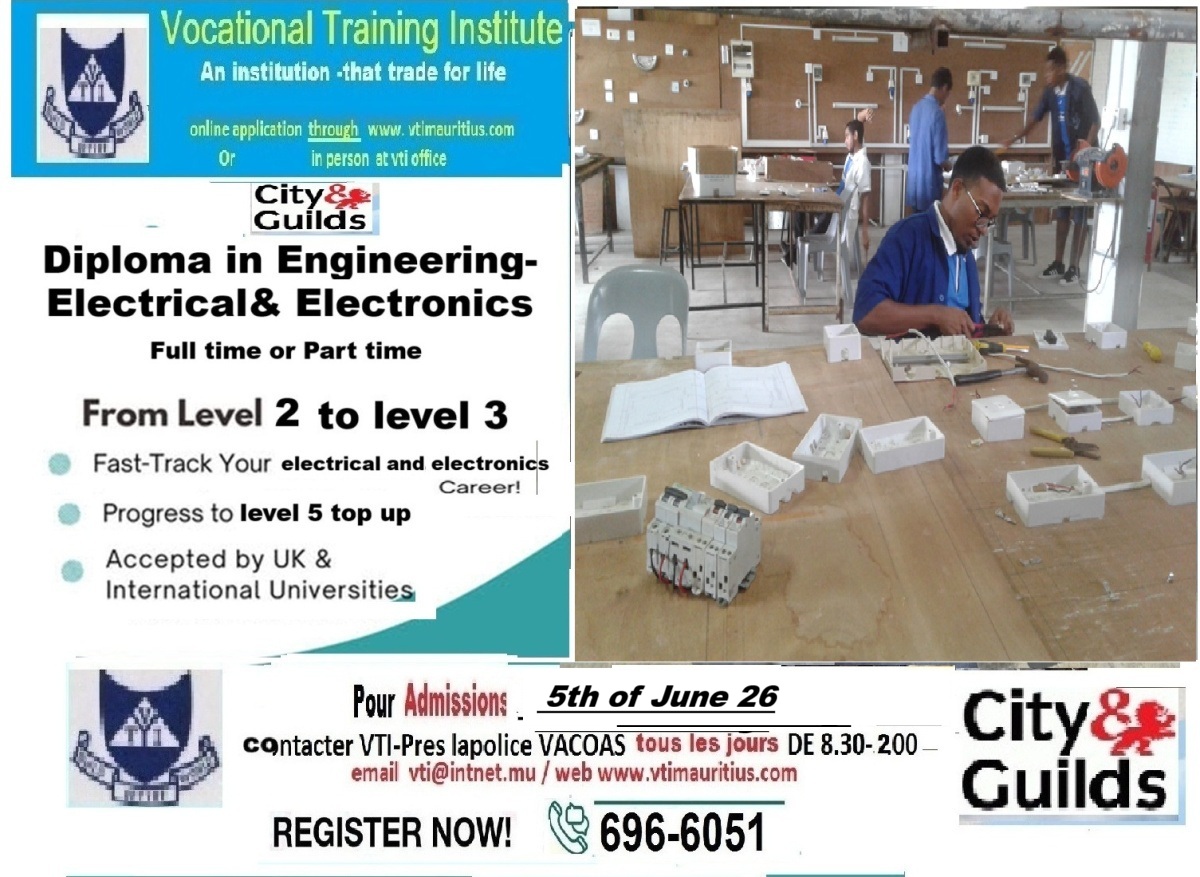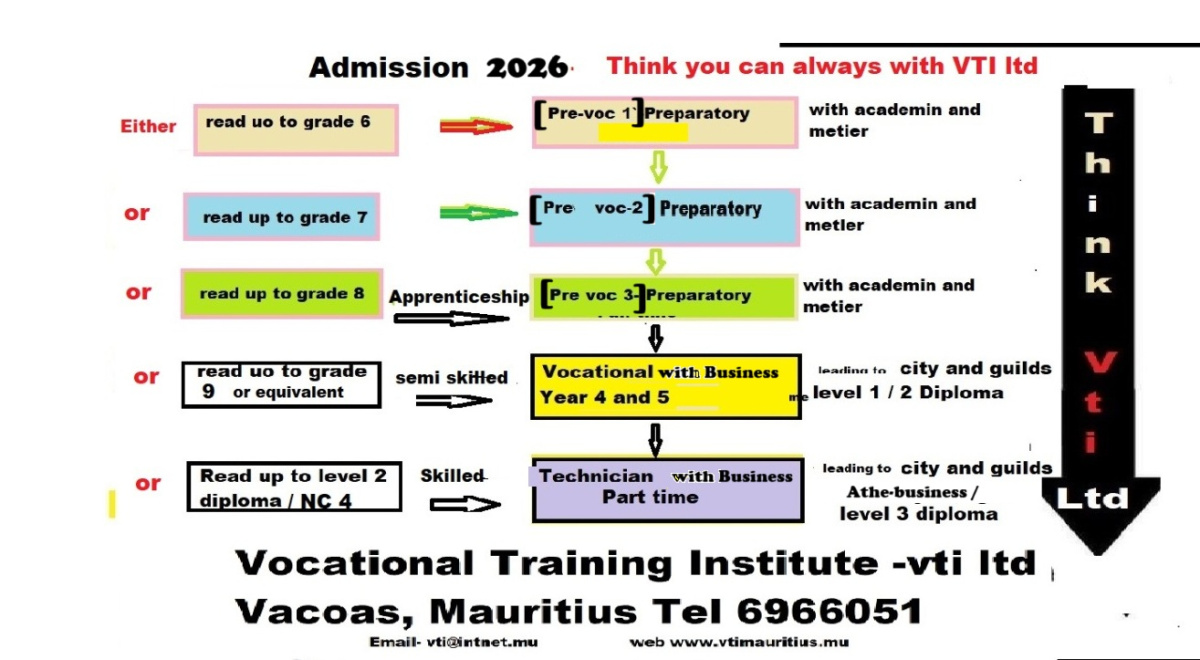VTI - Vocational Training Institute, Vacoas, Mauritius




Entry requirements
Vti stage1 Prevocational [1-3 yrs] full time




Entry requirements
Vti stage1 Prevocational [1-3 yrs] full time
For Registration, please bring along original Birth Certificate / I.D, Educational Certificates and a Registration Fee of Rs. 100.